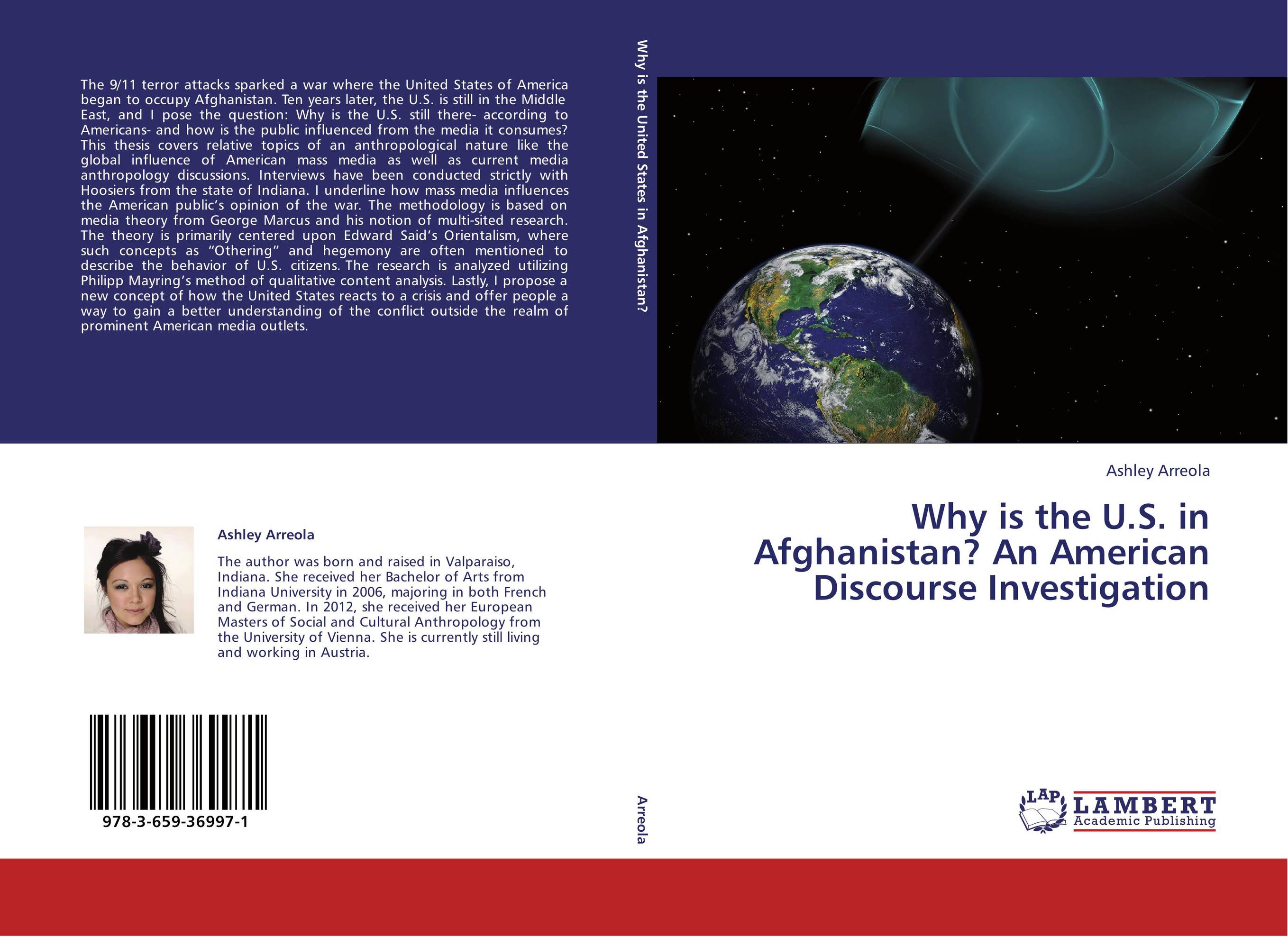| Поиск по каталогу |
|
(строгое соответствие)
|
- Профессиональная
- Научно-популярная
- Художественная
- Публицистика
- Детская
- Искусство
- Хобби, семья, дом
- Спорт
- Путеводители
- Блокноты, тетради, открытки
Why is the U.S. in Afghanistan? An American Discourse Investigation.

В наличии
| Местонахождение: Алматы | Состояние экземпляра: новый |

Бумажная
версия
версия
Автор: Ashley Arreola
ISBN: 9783659369971
Год издания: 2013
Формат книги: 60×90/16 (145×215 мм)
Количество страниц: 104
Издательство: LAP LAMBERT Academic Publishing
Цена: 31828 тг
Положить в корзину
| Способы доставки в город Алматы * комплектация (срок до отгрузки) не более 2 рабочих дней |
| Самовывоз из города Алматы (пункты самовывоза партнёра CDEK) |
| Курьерская доставка CDEK из города Москва |
| Доставка Почтой России из города Москва |
Аннотация: The 9/11 terror attacks sparked a war where the United States of America began to occupy Afghanistan. Ten years later, the U.S. is still in the Middle East, and I pose the question: Why is the U.S. still there- according to Americans- and how is the public influenced from the media it consumes? This thesis covers relative topics of an anthropological nature like the global influence of American mass media as well as current media anthropology discussions. Interviews have been conducted strictly with Hoosiers from the state of Indiana. I underline how mass media influences the American public’s opinion of the war. The methodology is based on media theory from George Marcus and his notion of multi-sited research. The theory is primarily centered upon Edward Said’s Orientalism, where such concepts as “Othering” and hegemony are often mentioned to describe the behavior of U.S. citizens. The research is analyzed utilizing Philipp Mayring’s method of qualitative content analysis. Lastly, I propose a new concept of how the United States reacts to a crisis and offer people a way to gain a better understanding of the conflict outside the realm of prominent American media outlets.
Ключевые слова: Identity, Media, Anthropology, Imperialism, Cross-cultural communication, Orientalism, qualitative research method



